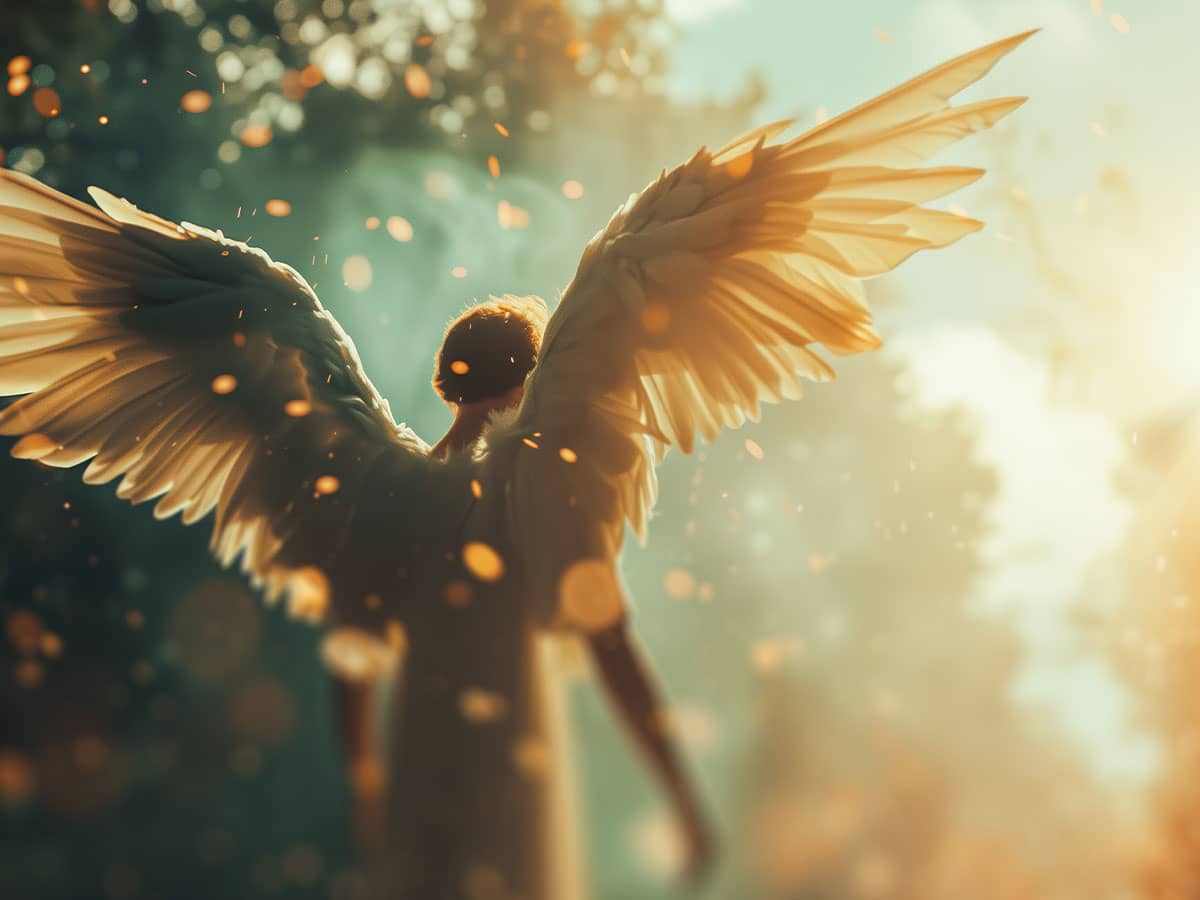 Controversial author Barbara Ehrenreich has long been fascinated by the darker side of human behavior and institutions. In her best-selling "Nickeled and Dimed," she joined the millions of Americans working for poverty-level wages. "Blood Rites" delved into the origins of our species' attraction to war. But her newest book, "Dancing in the Streets," explores humanity's desire for collective joy, historically shown in ecstatic revels of feasting, costuming, and dancing. In this Beliefnet interview, she offers some surprising conjectures about the evolutionary role of celebrations, Christianity's origins as a "danced religion," the purpose of labyrinths, Carnival's anti-authoritarian roots, and dancing as a possible cure for depression.
Controversial author Barbara Ehrenreich has long been fascinated by the darker side of human behavior and institutions. In her best-selling "Nickeled and Dimed," she joined the millions of Americans working for poverty-level wages. "Blood Rites" delved into the origins of our species' attraction to war. But her newest book, "Dancing in the Streets," explores humanity's desire for collective joy, historically shown in ecstatic revels of feasting, costuming, and dancing. In this Beliefnet interview, she offers some surprising conjectures about the evolutionary role of celebrations, Christianity's origins as a "danced religion," the purpose of labyrinths, Carnival's anti-authoritarian roots, and dancing as a possible cure for depression.I was reading a lot about human bonding. Not of the sexual or parent/child relationship kind, but the kind of bonding that knits together communities or even can bring in strangers.
And I began to see something really riveted me--this tradition, which is just about universal in human cultures, of festivities and ecstatic rituals, always involving certain ingredients. One would be music and dance. Feasting would be the second, which could include drinking. And third, costuming, masking, face paint, body paint. You could have a procession with this. You can have drama. You can have comic episodes or performances.
What do you think people get out of these ecstatic rituals? Why do we need them?
So it has an evolutionary role.
It's also the chance for individuals to shine--you know, show talents that might not mean much in ordinary life. If you are a super dancer or if you have a great costume or you're a great musician, maybe you're just a peasant in the rest of your life, but these festivities are a time when you are a star.
What about the spiritual aspect?
Emile Durkheim, the famous early 20th century sociologist, even ventured to say that all religions originated in these ecstatic rituals. That's where you have a glimpse of the transcendent.
And, of course, you can have very exciting communal festivities and things. You could get very excited about the Super Bowl, for example, and paint your face and jump around with other people and do the wave, feast on beer and hot dogs--but nobody would expect to go into an altered state or to commune with any deities in a football stadium!
But when it is expected and part of what's culturally acceptable, as in existing ecstatic religions like Voodoo, that would be a source of actual prestige to you, that you were able to go into a trance state, which you would then come back and declare as having involved this connection with a deity or spirit.
Did early Christianity have this kind of ecstatic ritual?
I was surprised to learn that there weren't even pews in Catholic churches until, I think, the 15th century or so. But in the late Middle Ages you start hearing the church fathers and the hierarchy continually complaining about the custom of dancing in churches.
You wrote something about labyrinths in medieval churches being connected to sacred dancing.
But this all gets pushed out of the Catholic churches well before the Reformation, where a number of interesting things take place. One is the dancing manias of the 14th century and later, where whole towns seem to be seized by this irrepressible desire to get out in the streets and dance. It’s been a puzzle to historians for a long time. I think you could rule out any biological causes like some toxin causing these things, which is what historians thought for a long time. It was contagious, but it was visually contagious. Bystanders to these crowds of dancers would be propelled to join in by the music and the dancing.
Why do you think dancing was driven out of the church? Who drove it out?
Another thing--if the dancing that was going on in the churches was ecstatic, then that presents a threat to organized religion. Whenever people can access deities directly without the intervention of a religious hierarchy, they don't need to have hierarchy so much. So you have a long fight in the Catholic church to suppress what they call enthusiasm, from the Greek meaning "possessed"--having a god within you. If you can do that, what do you need the priest for?
You write that festivals are good for mental health—even preventing depression.
What they would describe by way of symptoms is very much what we would today call depression. My guess is that there certainly is a connection to the suppression of traditional festivities, which was much more marked after the Reformation because of Protestants. They were real killjoys.
My own conjecture is that it has to do with the fact that festivities and ecstatic rituals are traditional cures for depression. You can find that in many cultures, one of the best examples being among some Islamic groups in northern Africa, where if a woman becomes very depressed and takes to her bed, someone--her family will call in a Zar, a healer--who comes with musicians and lots of other people.
There are days and nights of ecstatic dancing until the afflicted person gets up and joins, and is thereby cured or declared cured. You know, there aren't scientific studies of this. But many cultures have seen these sorts of things as a cure for what we would describe as depression.
Do you think that the celebratory aspect of religion is being revived today?
It's emotionally hot. It involves music. People are encouraged to move. People do enter trance states, which they interpret as being lifted up by the Spirit, the Holy Spirit.
Do you think that we've lost something? Can group experiences can be an antidote to malaise today?
Isn't it in a way, though, an evasion of our problems? Would you tend to not focus on solutions if you're like lost in a trance?
Well, it's possible it could work that way, too. And that's been the general opinion of a lot of anthropologists. Why didn't these people–colonized people, for example--why didn't they just focus on having a revolution against the colonizers? Why were they just doing this silly stuff?
But I think that misses the way that these kinds of activities give people strength and show them their collective strengths, which is perhaps even more important. In the Caribbean slave revolts would have a tendency to coincide with Carnival or in the late-early modern Europe Carnival would be the occasion for peasant uprisings.
In your book, you say that Carnival was a time for people to get back at those in authority.
What about in our culture? What do we have instead of Carnival?
And what began to happen in the '50s with rock-'n-roll is people getting up, getting up from their seats saying, we're not going to sit still. We're going to move to this music, music which ultimately derives from the ecstatic \danced religions of West Africa.
Is Mardi Gras a good example of communal ecstasy today?
Could you tell us about Dionysus and the ecstatic rites in the ancient world?
He was worshiped primarily by women in ways that now seem like kind of a proto-feminist revolt. Women would just drop their domestic chores and go off into the forest, even the mountains, for days and nights of wild revelry that the god demanded as the way you worshiped him.
Now, when this hit Italy the first century before the Common Era, they [the Roman authorities] squashed it with all the ferocity they later brought against the Christians. They bloodily suppressed Dionysian worship.
And then the Christians gradually transformed him into Satan, this creature with hooves and a tail.
Yet you also note that there's some connection between Dionysus and Jesus.
And there's that place where Jesus says, "I am the one true vine," which has been interpreted by some theologians to mean he was distinguishing himself from Dionysus. But there are ancient works of art, coins, wall paintings, things like that, that suggest that there was real overlap between the worship of Dionysus and Jesus or confusion between the two, which is very odd. All I can suggest is that the followers of Jesus wanted to associate him with this very popular Greek god.
But what the Christians had that the earlier ecstatic religions never got together was creating a community that went on between the times you met and danced and worshiped. This created kinds of solidarity and support for people that were more lasting.

